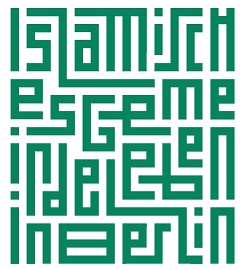Presentation of the study “Islamic Community Life in Berlin”
The study “Islamic Community Life in Berlin” was presented in Berlin on 17th July 2018, commissioned by the Senate Department for Culture and Europe and published by Prof. Dr. Riem Spielhaus, Nina Mühe, M.A. and the EZIRE.
The study, which takes up publications from 1999 and 2006, provides an overview of the multifaceted Islamic life in Berlin and its changes. The results of interviews and focus groups with community representatives are contextualised and rounded off with expert contributions in the study. Particularly noteworthy are the following developments:
- The infrastructure for worship and community activities is showing slight growth.
- The main offerings and activities of the communities consist of religious and social services, with a particular focus on youth work – from youth to youth.
- The engagement of the communities for networking in and with the city and the cooperation with politics, media, associations and other areas of civic life has risen sharply.
- About 40% of the surveyed communities are also involved in interreligious initiatives such as the Forum der Religionen Berlin.
- Interest in the opening of mosques to the public in the form of sightseeing (for example, on the day of the open mosque) is increasing.
- Meanwhile, two-thirds of Berlin’s mosque associations are organized in regional or national umbrella organizations. That’s 20% more than in 2006.
- Communication and cooperation among each other has also developed positively, e.g. in joint projects of Sunni and Shia communities.
- Particularly in the pastoral care and care of traumatized refugees and in the prevention of radicalization, the communities reach their professional limits and feel a need for more support.
- Further challenges are found in Islamophobic everyday experiences and attacks on mosques, access to premises for community work and the implementation of mosque construction projects, the religion – sensitive care of the elderly, despite all ongoing projects and efforts in dealing with Islamic extremism, and the public ‘s lack of public awareness Commitment of Islamic communities.
Senator Dr. Klaus Lederer sums up the results and developments as follows:
“It is impressive what is done voluntarily in the mosque communities in Berlin. Not just in religious services, but also in social and sociopolitical offerings that benefit the whole city. I hope that this multifaceted commitment will be better perceived and that the Islamic communities will be valued as civil society partners. ”
The study is available in full length online.
